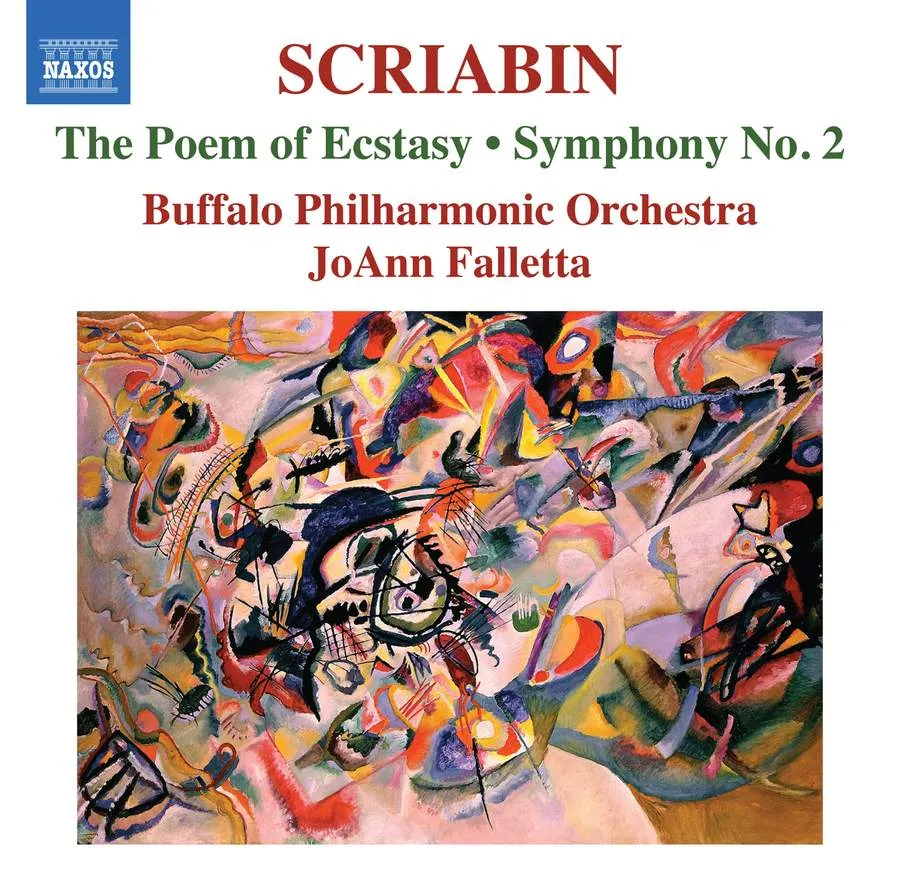
Scriabin Symphony No. 2; The Poem of Ecstasy Buffalo Philharmonic Orchestra/JoAnn Falletta Naxos 8.574139 59:32 mins
Even by the standards of megalomaniac composers and self-regarding virtuoso pianists, Scriabin’s vast and egocentric pretension is an offputting aspect of his music, and of what we know of his nature. He really does seem to have thought of himself as a kind of hyper-sexualised messiah, whose culminating Mysterium project (thwarted by his death aged 43) was to be performed over several days in the Himalayan foothills and would effectively amount to the apogee of human existence, presided over by himself. While self-criticism of any kind was not Scriabin’s style, his output nonetheless contains some remarkable works, among which The Poem of Ecstasy is a genuine phenomenon – a tour de force of sumptuous chromaticism and shimmering sonority, written for a huge orchestra and assembled into a superbly concise structure.
JoAnn Falletta’s interpretation brilliantly showcases the music’s strengths. The overall pace is restlessly quick, in a way that’s urgent and exciting rather than glib, and conveying a sense of underlying emotional danger that merely firework-display performances tend to miss. The Buffalo Philharmonic players respond with a virtuoso panache that avoids any trace of brashness. Although Scriabin’s earlier Second Symphony is not as prolix as its 40-minute duration might imply, its idiom is a more predictable genre of Russian late-Romanticism, resembling Balakirev filtered through Richard Strauss (with flawless technical command). Conductor and orchestra again maximise the work’s strongest points, with Falletta keeping its five-movement design on a convincingly tight rein while securing string tone of impressive fullness and warmth.
Malcolm Hayes